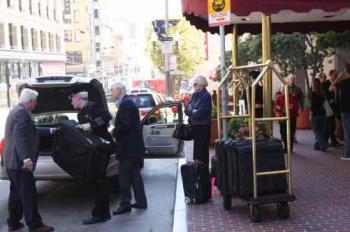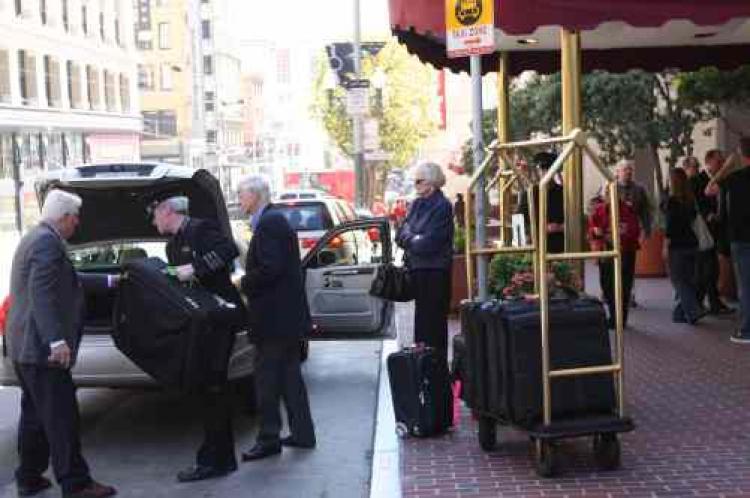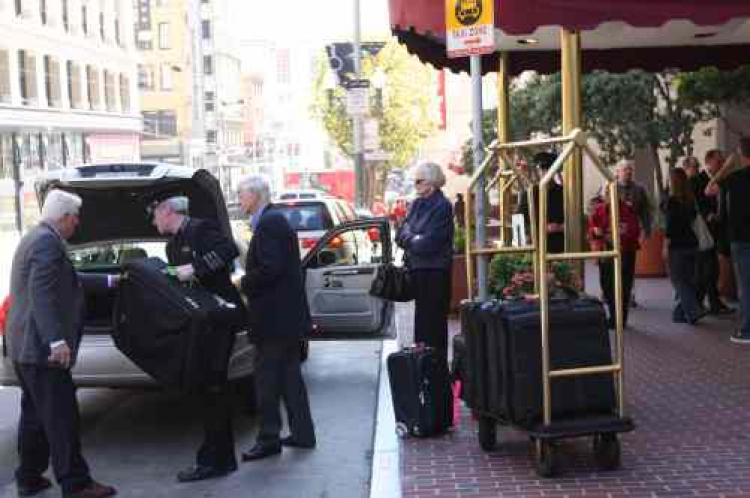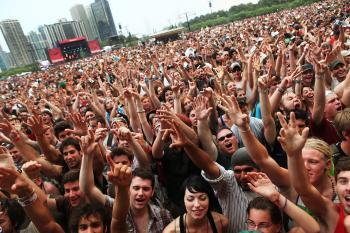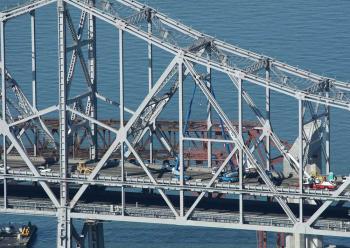Stalled labor negotiations with San Francisco’s largest hotel chains over wages, workload and health care, has prompted workers at more than 60 upscale hotels to authorize a strike in the coming weeks if negotiations don’t move on.
“Workers don’t want to go on strike, but what hotel corporations proposed as they continue to report continuous profit is outrageous,” said Riddhi Mehta, spokeswoman for United Here! Local 2, a union which represents more then 9,000 hospitality workers in the San Francisco Bay Area.
The union and the hotels have been in a deadlock for two months, as hotel chains proposed limits to employer health care contributions. Hilton has reportedly proposed cutting the starting rate of workers by 25 percent. Newly hired housekeepers for example, would take a salary from $31,000 to $23,000 a year, according to the Local 2 estimates.
The issues at stake are many as tourism industry is a San Francisco mainstay, and a possible strike could cause the loss of millions of dollars in revenue—each hotel room generates 14 percent in city taxes which is one of the largest city tax generators. Last year alone, hotels generated more than a half billion dollars in taxes for the city—a significant revenue in otherwise sluggish economy.
Meantime, some hotel corporations recent reports showed continued profitability. Starwood (which operates the Westin St. Francis, Palace, W, and St. Regis hotels) today announced profits of $180 million during the first three quarters of 2009, while Hyatt (which operates the Grand Hyatt and Hyatt Regency) is preparing an initial public stock offering that is expected to raise over $1 billion.
Over 3,000 unionized workers cast ballots on Thursday and overwhelmingly voted with 92 percent approving the measure, but workers will remain on the job until the bargaining committee calls a strike.
The union’s current contract expired Aug. 14.
The looming walk out threatens some of the San Francisco most prominent properties owned by Hyatt, Hilton, Starwood, InterContinental, and Fairmont corporations as well as other jobs created with tourism.
Tourism in San Francisco supported almost 73,000 local jobs in 2008, according to the San Francisco Convention and Visitors Bureau. Last year more than 16.4 million visitors spent $8.52 billion, according to the bureau’s data.
Although details of the corporation’s proposals vary, the objective according to the Union is to accomplish in varying degrees increasing workloads by cutting shifts and combining jobs. Another sore spot according to the Union, is the proposed shifting the burden of rising health care costs onto workers who earn an average of $30,000 to $35,000 a year.
The hotels say health care costs have tripled and they can’t maintain those benefits.
Hotel workers including room cleaners, cooks, food servers, bellmen, bartenders and dishwashers represented by United Here! Local 2 walked out and went on strike in 2004. Hotels lost between 50 million and $100 million in business.
“Workers don’t want to go on strike, but what hotel corporations proposed as they continue to report continuous profit is outrageous,” said Riddhi Mehta, spokeswoman for United Here! Local 2, a union which represents more then 9,000 hospitality workers in the San Francisco Bay Area.
The union and the hotels have been in a deadlock for two months, as hotel chains proposed limits to employer health care contributions. Hilton has reportedly proposed cutting the starting rate of workers by 25 percent. Newly hired housekeepers for example, would take a salary from $31,000 to $23,000 a year, according to the Local 2 estimates.
The issues at stake are many as tourism industry is a San Francisco mainstay, and a possible strike could cause the loss of millions of dollars in revenue—each hotel room generates 14 percent in city taxes which is one of the largest city tax generators. Last year alone, hotels generated more than a half billion dollars in taxes for the city—a significant revenue in otherwise sluggish economy.
Meantime, some hotel corporations recent reports showed continued profitability. Starwood (which operates the Westin St. Francis, Palace, W, and St. Regis hotels) today announced profits of $180 million during the first three quarters of 2009, while Hyatt (which operates the Grand Hyatt and Hyatt Regency) is preparing an initial public stock offering that is expected to raise over $1 billion.
Over 3,000 unionized workers cast ballots on Thursday and overwhelmingly voted with 92 percent approving the measure, but workers will remain on the job until the bargaining committee calls a strike.
The union’s current contract expired Aug. 14.
The looming walk out threatens some of the San Francisco most prominent properties owned by Hyatt, Hilton, Starwood, InterContinental, and Fairmont corporations as well as other jobs created with tourism.
Tourism in San Francisco supported almost 73,000 local jobs in 2008, according to the San Francisco Convention and Visitors Bureau. Last year more than 16.4 million visitors spent $8.52 billion, according to the bureau’s data.
Although details of the corporation’s proposals vary, the objective according to the Union is to accomplish in varying degrees increasing workloads by cutting shifts and combining jobs. Another sore spot according to the Union, is the proposed shifting the burden of rising health care costs onto workers who earn an average of $30,000 to $35,000 a year.
The hotels say health care costs have tripled and they can’t maintain those benefits.
Hotel workers including room cleaners, cooks, food servers, bellmen, bartenders and dishwashers represented by United Here! Local 2 walked out and went on strike in 2004. Hotels lost between 50 million and $100 million in business.
